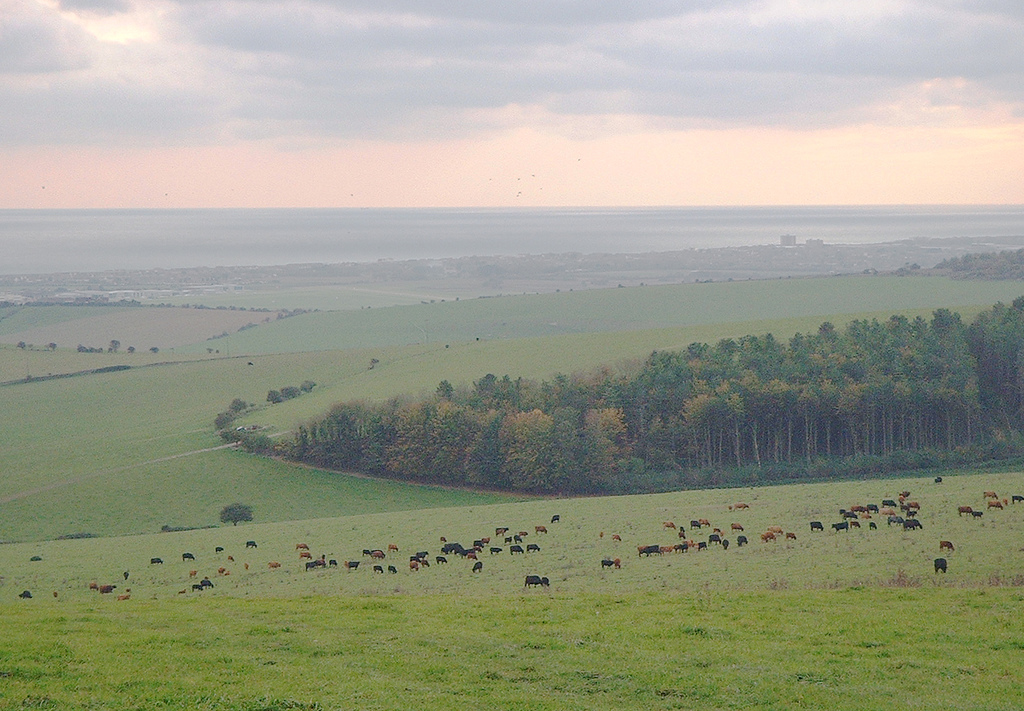Britain’s exit from the European Union – known as Brexit – poses a significant set of risks to the South Downs National Park, a meeting was told this afternoon (Thursday 24 September).
Farm incomes were threatened by potentially unfavourable terms of trade, according to a report to members of the South Downs National Park Authority.
And subsidies were likely to decline at the same time as a shortage of possible casual labour could add to farmers’ burdens.
A virtual meeting of the national park authority’s Policy and Resources Committee heard from head of governance Robin Parr about a range of risks, with Brexit rated “red”.
The transition ranked among the most concerning in the national park authority’s risk register although efforts were being made to mitigate those risks despite a great deal of uncertainty. These were expected to downgrade the risk level to “amber”.
Concerns remained about government funding as the Department for Environment, Food and Rural Affairs (DEFRA) “takes on multiple priorities to develop a post-CAP (Common Agricultural Policy) support package and repatriate a complex basket of EU environment legislation”.
Mr Parr’s report also warned: “Land managers (could) suffer loss of income from CAP Pillar 1 leading to undesirable changes in landscape management and increased pressure on our planning function due to rush to diversify income.”
It added that there was a risk that “increased uncertainty” could hold back investment, increasing pressure to “remove environmental protections”.
The government has signalled its intention to publish bills – draft laws – relating to agriculture and the environment in the wake of Britain’s departure from the EU.
This also gave rise to uncertainty and risk, according to Mr Parr’s report to the committee.
There was a suggestion that climate change should be treated as a separate corporate risk although Mr Parr said that it was reflected in two of the other items on the register.
The committee noted his report.
The meeting was also given an update about a landscape project at Truleigh Hill on the South Downs Way, north of Shoreham.
Members were told: “This project is now nearing completion. A dedicated project officer has been developing links between the local community and residents of the surrounding urban areas.”
The aims included “to raise the profile and understanding of Truleigh Hill, its history and landscape and to develop through this work a landscape-scale approach to restoration and protection of landscape character and biodiversity”.
Roni Craddock, the national park authority’s director of countryside and policy management, told the committee: “This project was set up as a pilot to investigate ways of working in the NCIAs (natural capital investment areas), focused on community involvement and engagement, and was funded by the Rampion 1 ‘section 106’ fund.”









